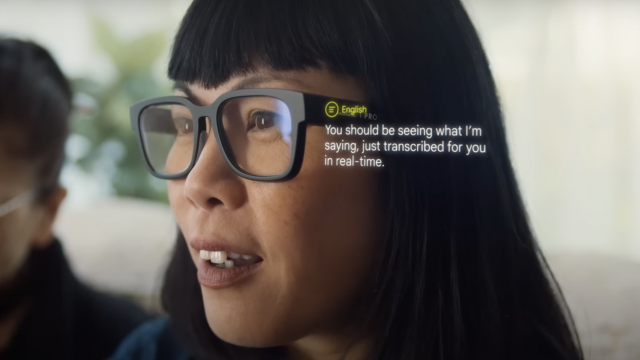In a new attempt to market wearable technology after its Google Glass program famously failed, the technology giant revealed Tuesday that it will start putting prototypes of its new augmented reality glasses through real-world testing.
The public tests, which will build on lab testing, will start out next month with a small number of testers and a few dozen employees. In a blog post, Google group product manager Juston Payne, who is in charge of the company’s Glasses team, wrote.
The prototypes have microphones, in-lens displays, and cameras.
According to a FAQ on the initiative, Google’s main objectives for the tests are to examine how the glasses function in navigation, transcription, translation, and visual search.
Google will restrict testers’ activities, and users won’t be allowed to use the glasses when operating heavy equipment, participating in sports, or driving.
Google appears to be firmly establishing its flag in the area of augmented reality, while businesses like Meta are solidly in the virtual reality camp with their Quest headgear. Google’s CEO refers to augmented reality as “a new frontier of computing” in a blog post covering everything from the I/O conference.
He claims that augmented reality (AR) has the potential to transform the way we use computers and access information into a mystical world where technology just vanishes. The company’s prototype spectacles fit the bill in this situation.
Context
To considerable fanfare and privacy concerns, Google originally introduced smart glasses in 2012. However, the company stated in 2015 that it was stopping the sale of the first iteration of Google Glass.
On May 11, Google introduced its revamped augmented reality glasses and shared a video demonstrating their real-time translation capabilities. Google is aiming for a delivery date of 2024, according to a January report from Verge.
The creation of augmented reality technology is another area of interest for other Silicon Valley powerhouses. According to Bloomberg, Apple showed its board a mixed reality device in May, and Mark Zuckerberg, CEO of Meta, plans to release his company’s augmented reality glasses by 2024, according to Verge.

